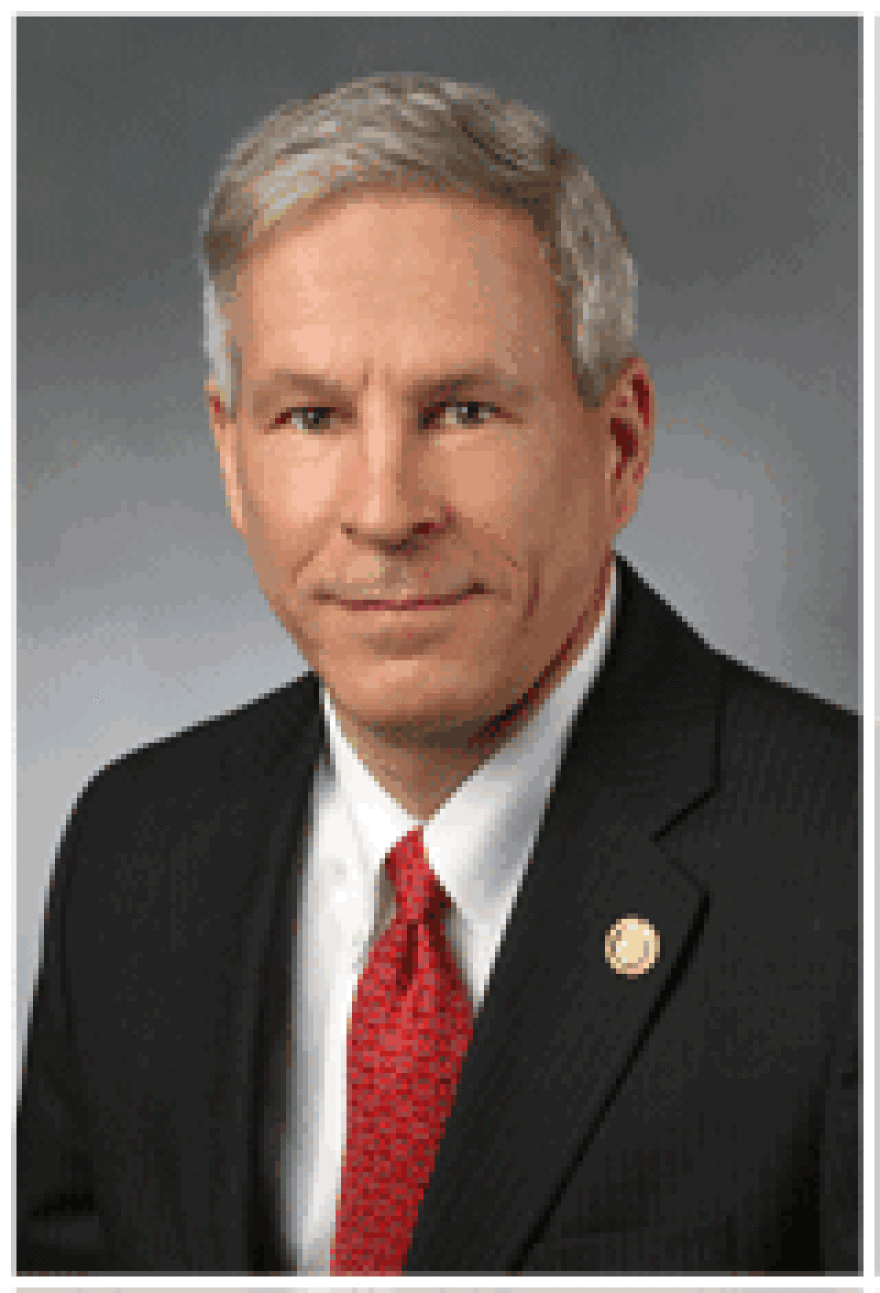Sunrise is just starting to break over the skies of St. Joseph, but Dr. Bob Stuber is busy under fluorescent lights, examining a patient inside the hundred-year-old building that houses the Social Welfare Board. After decades heading an internal medicine practice, working at a charity clinic is a big change for Stuber. But it’s not the only post-retirement shift for a doctor who voted Republican for most of his 75 years.
“I switched to the Democrat party six years ago when the Tea Party wackos made themselves known by acting so rudely in the town hall meetings when the Affordable Care Act first came out,” Stuber says. “And I thought, ‘If that’s what being a Republican is, then I guess I’m not a Republican.’”
Since then, Stuber has made a reputation for himself in St. Joe, writing editorials and advocating on behalf of the poor, focusing particularly on raising the minimum wage. He decided to take the plunge and run for office this year out of frustration with the incumbent state senator, Dr. Rob Schaaf.
“He’s done some things I thought were very inappropriate and downright irresponsible,” Stuber says.

Schaaf, 57, got his start in Jefferson City 12 years ago as a state representative and was elected to the state senate in 2010. He says he’s for “free-market change” of health care by increasing price transparency and reducing government involvement. Schaaf says that he, too, got into politics out of frustration.
“I was having trouble dealing with Medicaid and insurance plans to get my patients the care they needed,” he says.
Many of the positions taken by Schaaf have troubled advocates of health reform, including Stuber. At the top of Stuber’s list is the senator’s resistance to creating a prescription drug monitoring program in Missouri, which pharmacists and law enforcement officials say is needed to curb drug abuse.
“I opposed the prescription drug monitoring program because it takes away our liberty,” Schaaf says. “And specifically our right to privacy of our medical information.”
Schaaf garnered national media attention for his stance, leaving Missouri as the only state that doesn’t monitor narcotics. It’s a position his challenger calls “arrogant.”
“I think he set himself up as being superior in knowledge than all the other legislators in all the other 49 states who do have a central drug registry for narcotic medications,” Stuber says.
The two physicians likewise stake out different positions on Medicaid expansion, part of the Affordable Care Act. Schaaf staunchly opposes the act, going so far as to quit the American Medical Association in 2009 when the organization came out in favor of the health reform law.
“Medicaid expansion would grow our state budget by hundreds of millions of dollars over the next five years,” Schaaf says.
Stuber cites several studies that refute that argument, including one by the University of Missouri stating that expansion would give a major economic boost to the state, creating tens of thousands of jobs and increasing tax revenue. Stuber says he’s suspicious of his opponent’s hostility to expansion.
“By and large, the Missouri state legislators, as well as many of the people in St. Joe., especially the Tea Party ilk, are resisting Medicaid expansion purely on ideological and political reasons,” he says. “They want this black president to fail, and that’s all there is to it.”
Besides Schaaf and Stuber, no fewer than five other doctors will be on Missouri’s General Assembly ballot in November. That’s music to the ears of Jeff Howell, general counsel of the Missouri State Medical Association, which, along with the American Medical Association, would like to see even more physicians run for office.
“They’re very knowledgeable, as you can imagine,” Howell says. “They have a skill set that not many other professionals have. They’re very educated, and they’re very smart. And they’re underrepresented in state government, there’s no doubt about it.”
Like Stuber, the Missouri State Medical Association favors Medicaid expansion, but it’s endorsing Schaaf. The association explains that Schaaf is a former board member who’s had the association’s support for all 12 of his years in office.
“At this point, we don’t see any reason to change tracks. You want to support the guys who have supported you, and that’s what Dr. Schaaf is to us,” Howell says.
At least one observer at the intersection of medicine and politics urges caution when it comes to endorsing doctors. Dr. Bob St. Peter, a pediatrician who heads the Kansas Health Institute in Topeka, a nonpartisan health policy and research organization, says many physicians have been drawn into politics because of their experience with health reform. But that experience doesn’t necessarily translate into a thoroughgoing understanding of the issues, he says.
“Somebody can be motivated or driven by their own personal experiences to a degree that overgeneralizes their particular experiences and maybe tries to apply that in ways that aren’t necessarily broadly applicable,” St. Peter says.
St. Peter says he understands the appeal physician-politicians might hold out as knowledgeable and authoritative leaders. But he says they still warrant careful scrutiny by voters.
“I think that people should kick the tires really well and check out a candidate more broadly and not just assume they’ll be a good candidate because they’re a good doctor,” St. Peter says.
Voters in Missouri’s 34th District, which runs along the state line from St Joseph to Riverside, still have a week and a half to kick the tires of Dr. Schaaf and Dr. Stuber before sending one of them to Jefferson City on Nov. 4.
Whoever’s elected is likely to drive the health care conversation.




